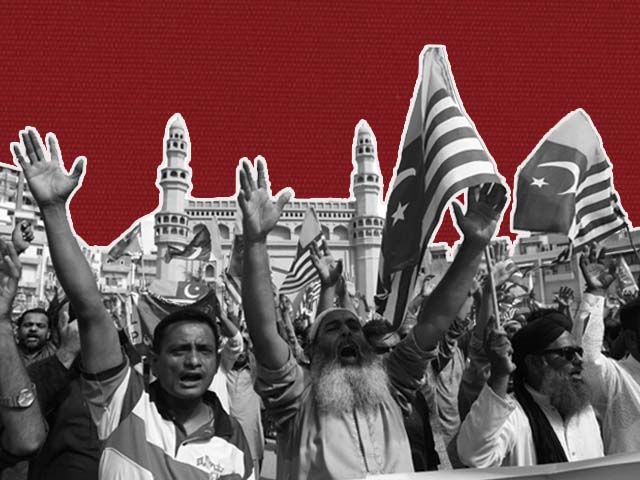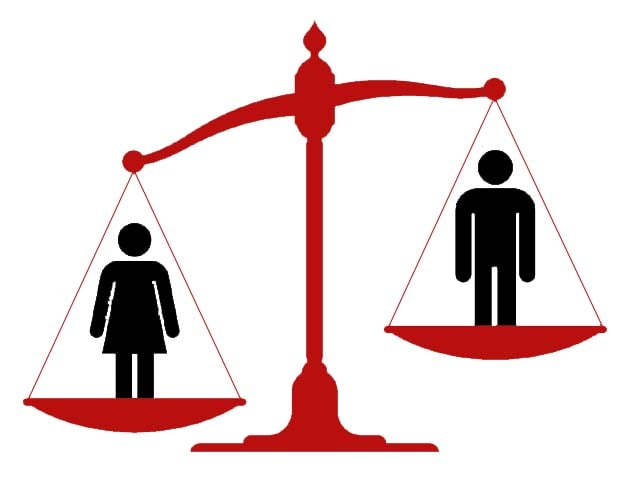
'Just call me Muslim'
When a man asked Jinnah if he was Sunni or Shia, Jinnah replied angrily that he was just a Muslim.
This year there have been a number of reports that what were clearly acts of sectarian violence, hatred and discrimination. In January, three lawyers - a father, his son and nephew- were gunned down. They were Muslims who belonged to the Shia sect. On the same day, three other professionals from the Shia community were killed in Quetta. This all follows the year of 2011 where hundreds of Shias were murdered - and it seems as if nothing has, or will change.
The Shia community is not the only minority sect that is being targeted. For a couple of weeks, attempts were made to shut down an Ahmadi place of worship; a week ago, the food and beverage brand ‘Shezan’ was banned from all court premises by the Lahore Bar Association because the owners belong to the Ahmadiyya community.
This is just recent news.
Sadly, sectarian violence and discrimination in Pakistan is frequent. Some argue that the Pandora’s box was opened in 1974, when extremist Sunnis clashed with Ahmadis until they were declared non-Muslim by Pakistan’s constitution, though sectarian violence was reported as early as the 60s.
My personal belief is that the reason behind the rise in sectarianism is the increasing subconscious acceptance of it by our society.
Today discrimination amongst sects is openly publicised in Pakistan. I can confirm that the Islamiat textbook I studied from in high school preached religious inequality and even anti-Semitism. Due to a lack of quality education and teachers, irresponsible textbooks in our schools, statements made by religious scholars, things some of our elders say society in Pakistan has made assumptions based on people’s religious views. For many people, being Jewish is a crime. Being Christian is only slightly better, and then the fact that you are a Muslim makes you a superior and better Pakistani. Among Muslims people belonging to a sect feel they are ‘better’ than the others. I once sat in a majlis at a Shia mosque only to hear a long speech explaining all that was wrong with Sunnis, and heard similar sermons about Shia Muslims at Sunni mosques.
Keeping in mind the stories shared above and other incidents from the past, I find it safe to say the Ahmadiyya community receives the most hatred and discrimination. Some clerics have gone as far as announce the justification and permission for their murder. In fact in 2008, the leader of the anti-Ahmadi movement was invited to Dr Aamir Liaqat's TV show on which he repeated exactly that. The next day, two Pakistani citizen’s from the community were killed.
The problem we face in Pakistan is this extreme ‘holier than thou’ attitude; a strong feeling of self-righteousness and moral superiority. People believe that their personal beliefs are of greater virtue than those of others, and through a biased study with an ill-informed and poorly educated mind, have used words of Holy Scriptures to justify violence against those with differing religious views.
This is completely against what religion actually teaches.The Holy Quran tells us to approach those with different beliefs by starting on the points of agreement or equitable words. Islam also teaches us to accept that believers and non-believers both have their own religion and worship their own Lord(s) and in forbids any compulsion in religion.
Extremist groups behind these attacks target the Shia and Ahmadi community to incite fear within the sects and hence reduce, and eventually finish their ability to practice their faith openly. Keeping in mind the targeted killings in broad daylight last month, it is understandable that many people from the communities have fled the country as a result. Their tactics are working.
It should also be brought to light that these sectarian extremist groups have split since their inception in the 1980s and have regrouped under different titles and movements. They have spread all over the country from their starting point of Southern Punjab, taking their radical ideas to all parts of the state.
Much needs to be done to stop this. The country’s intelligence agencies need to find out how and where these groups operate, observe them and keep a check on local madrassas and what is taught there. A strategy must be devised on how to isolate and tackle them. Why we have waited so long to tackle this is a mystery. But in my opinion, these groups are only half the problem.
The other problem is our radicalised society. This polarisation of views is due to a combination of the spread of these sectarian groups, and the lack of impartial, quality education. With more than half the country living under the line of poverty, the vast majority cannot afford sound education, as it exists in Pakistan’s private schools that only the elite can afford. This leaves a colossal portion of the population exposed to sub-standard schooling, if any at all, and hence vulnerable to the acceptance of extremist ideas and versions of religion bestowed upon them. These are the people the sectarian groups feed on and this is where their support comes from.
It may seem absurd, but I have personally witnessed many educated people agree with the fatwa that allows the murder of Ahmadis. After everything he has done and said, countless people have undying, unconditional support for Dr Amir Liaqat; people have celebrated the death of the former Governor of Punjab and hailed his murderer as a hero; some still think it is 'okay' to target Shias.
And that is essentially the problem. People accept it.
But I don’t think these people are entirely to blame. It is our governance that is educating these people. Pakistan is the only state to declare Ahmadis as non-Muslims. When the state has numerous discriminating laws and education against entire sects, how could you expect its people to be any different?
How many of our text books proudly mention that Dr Abdus Salaam was from the Ahmadiyya community? He put Pakistan on the map by becoming the country’s only Nobel Prize winner but then left the nation in protest when his sect was declared non-Muslim. His gravestone was also modified after his death so that it would not read ‘Muslim’.
How many of our textbooks tell us that our founder, Muhammad Ali Jinnah, was a member of a minority sect, which was a minority community in an already Muslim minority in India?
How many of our textbooks tell us that our first ever foreign minister, Chaudhry Sir Muhammad Zafarullah Khan, who Jinnah referred to as his ‘son’, was a scholar of the Ahmadiyya Muslim community, drafted the Pakistan resolution, represented the country at the United Nations and served as a judge at the International Court of Justice? The answer is: not many.
Once a man asked Jinnah if he was Sunni or Shia and Jinnah responded angrily that he was just a Muslim. He was against sectarianism. That’s why Jinnah wanted faith, discipline and unity - virtues we lack the most.
Everyone thinks their beliefs are perfect, but none of us is God and no one should be allowed to judge anyone else.
Sectarian groups must be eliminated, madrassas monitored and education heavily reformed to change this mindset. If not, Pakistan will be contaminated with far too many fanatics.
The Quran asks us to show kindness to people of all faiths and calls Christians and Jews ‘people of the Book’. Today, Muslims in Pakistan can’t even be civil to sects of their own religion. It further says that when you see any injustice, fix it. If you can’t fix it, then raise your voice against it. And if you can’t raise your voice against it, then condemn it in your heart.
I think it would help if Pakistan started with the latter.




COMMENTS (132)
I commend Mr. Agha for his insightful article, and the Express Tribune for publishing it. The situation in Pakistan is indeed dire. The killer of the Punjab governor is lionized by a section of the educated public; 90 Ahmadis are massacred while saying their Friday prayers, and mullahs condemn a leader who dares to call the victims “our brothers”; public demands are openly made for murder, violence, and mayhem targeting minorities; sundry other examples exist. I humbly suggest a first step: let the government exit the fratricidal business of determining an individual’s religion, as it fatefully did in 1974. Let every person simply be identified as a Pakistani on official documents, including passports. At the same time, let it put down with a firm hand any attempt at creating hatred between different groups. It should nullify those parts of the Constitution that militate against human rights. Any delay in implementing the reversal of past governmental blunders will push the country beyond the point of no return. Peace to all, and may a just society soon arise!Comments are moderated and generally will be posted if they are on-topic and not abusive.
For more information, please see our Comments FAQ